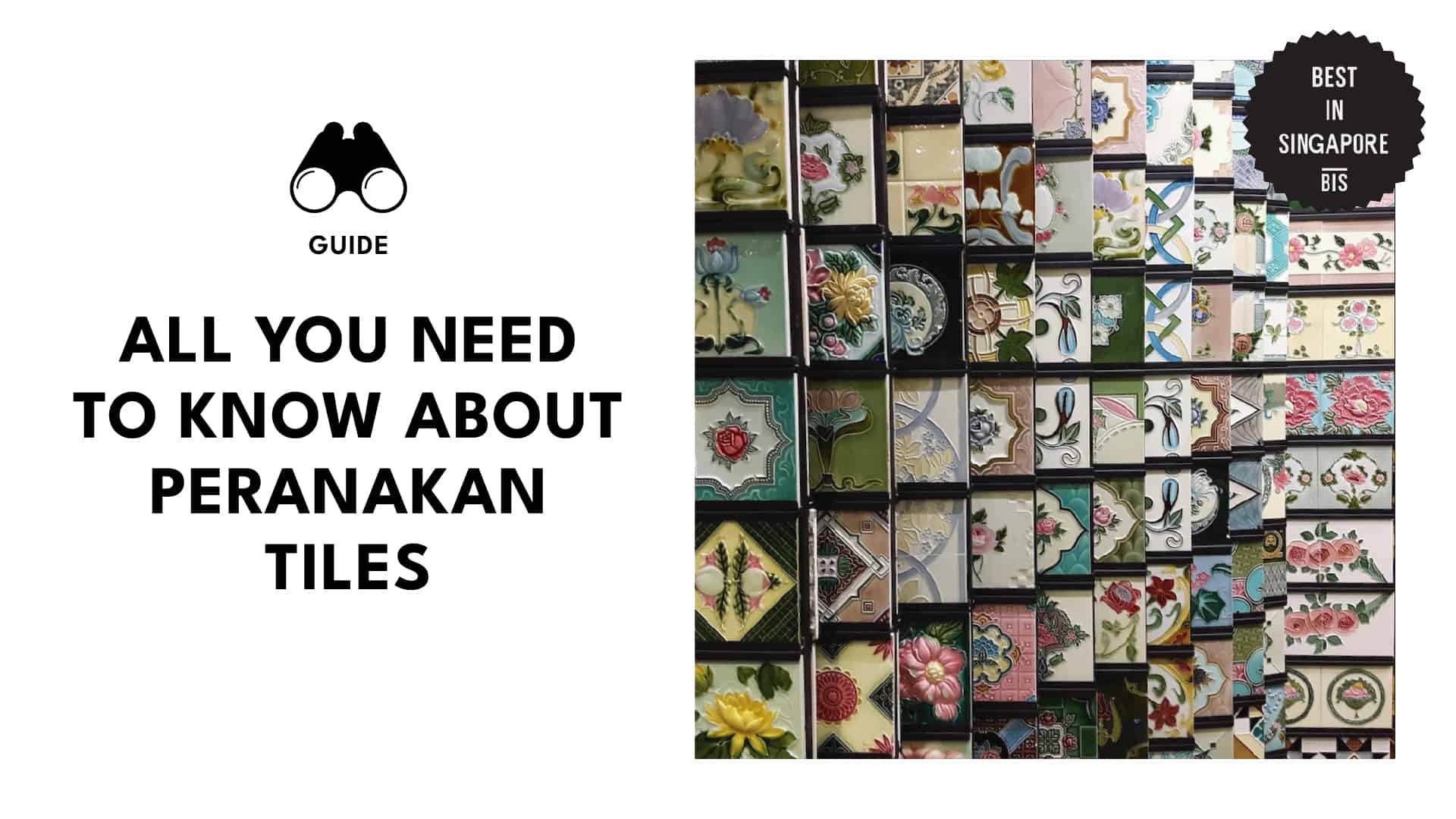Once Upon a Tile: All about Peranakan Tiles
Among many heritage buildings in Singapore, you might notice something: tiles with the most vibrant colors and the most interesting designs. They easily brighten up any space, and you wonder what are those tiles and where you can find them.
These are called Peranakan tiles, which became all the rage in the early 1900s, and they’re still going strong even in the 21st century.
This article has everything you need to know about Peranakan tiles in Singapore: what they are, where you can buy them, and more. Install them at home to add a touch of history to your space!
The History Behind Peranakan Tiles
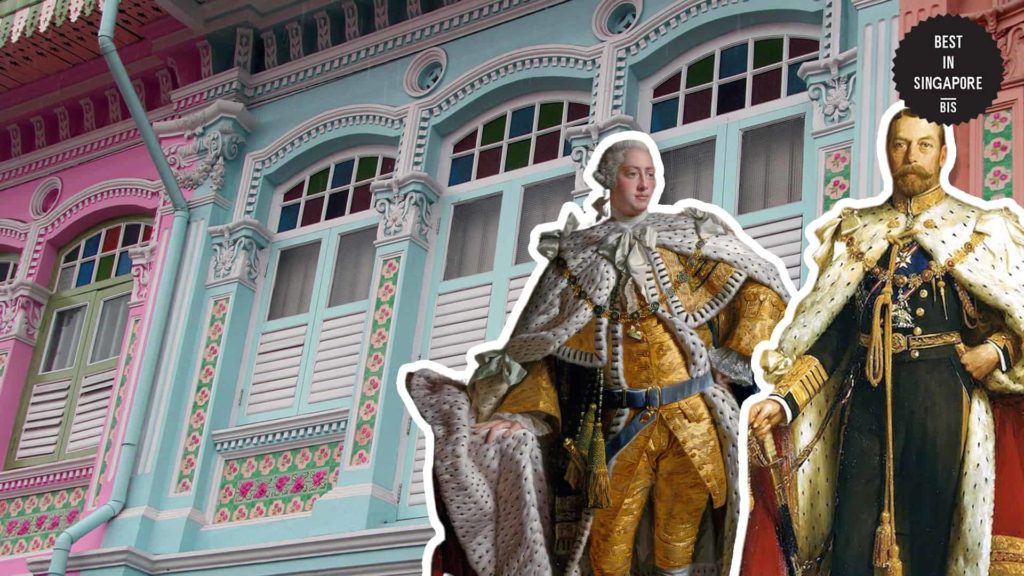
Even though Singaporeans nowadays associate Peranakan tiles with the Peranakan community, the Peranakans didn’t actually come up with them. Instead, these tiles originated from Britain, Germany, and Belgium, and they were known as majolica tiles.
Back in the early 1900s, these majolica tiles came their way to Singapore thanks to the British, and the Peranakans took a liking to them. They admired how intricate and artistic the tiles were, and they regarded them as a sign of wealth.
Because of this, Peranakans started incorporating the tiles into their houses and businesses. Eventually, this practice became so widespread that the tiles became a distinct feature of their community, hence why they are now known as Peranakan tiles.
How are Peranakan tiles made?
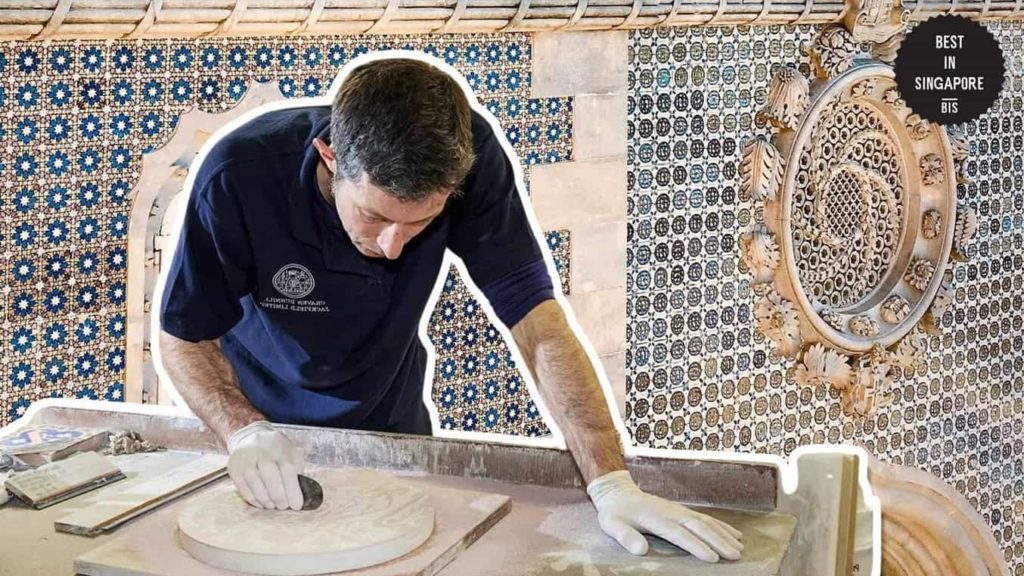
Traditionally, Peranakan tiles are made from ceramic and expertly carved and painted. They are also glazed with materials like cobalt, copper, or manganese so as to preserve the color of the designs and make them more durable.
However, this method isn’t really practiced anymore these days. Instead, Peranakan tiles are mass-produced, with the motifs and designs being machine-printed instead of carved; the ceramic base is still kept, though, so the tiles are still somewhat durable.
What are the characteristics of Peranakan tiles?
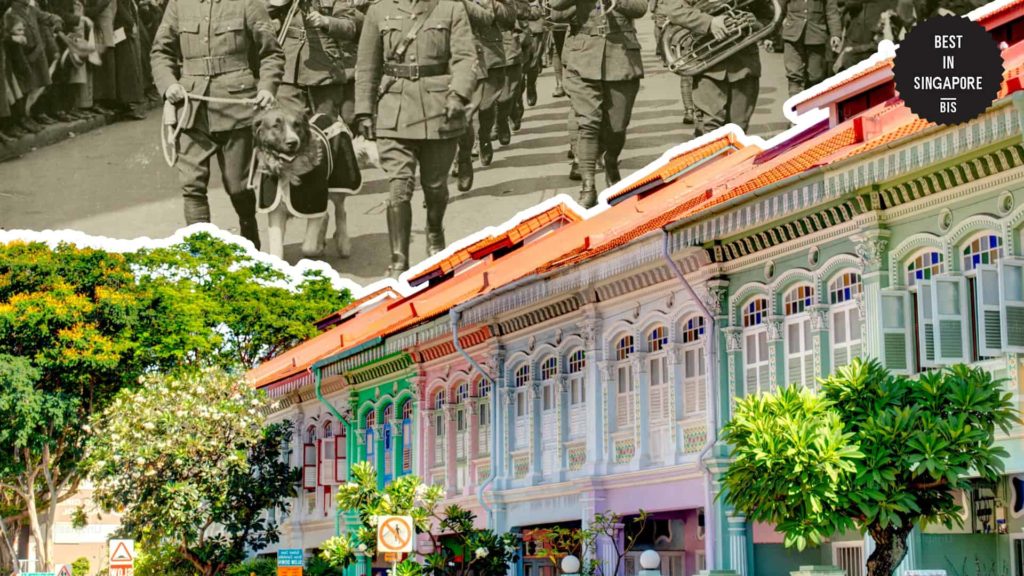
Peranakan tiles, especially the pre-World War II ones, are mostly noted for their vibrant colors and intricate designs. These designs usually depict oriental motifs, such as flowers, fruits, fish, birds, and other creatures deemed to be auspicious.
These days, there is a trend of using geometric designs on the tiles, but the ornate motifs are still being implemented in some.
What is the cultural signifance of Peranakan tiles?
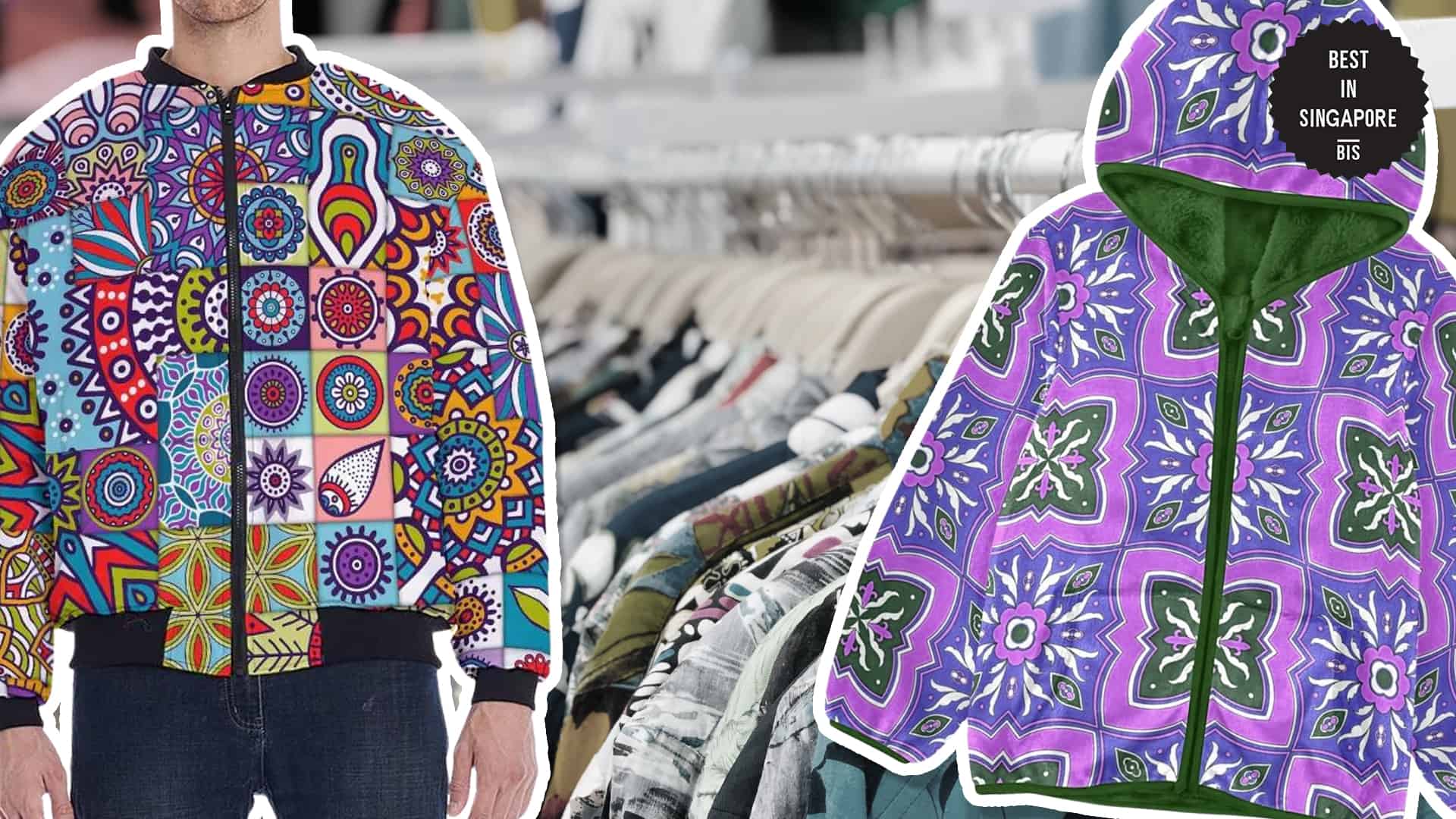
Back in the day, Peranakan tiles were a sign of wealth and affluence, so people in the community used them as decorative elements to show off their status.
In the present day, Peranakan tiles aren’t anymore viewed as a sign of wealth, but they are viewed as heritage icons. For this reason, the Singapore government is working to preserve the tiles, along with the rest of Peranakan architecture.
The iconic look of Peranakan tiles has also been co-opted by fashion designers. That’s why you can find clothes featuring patterns inspired by the ones commonly seen in Peranakan tiles.
Where can I see Peranakan tiles in Singapore?
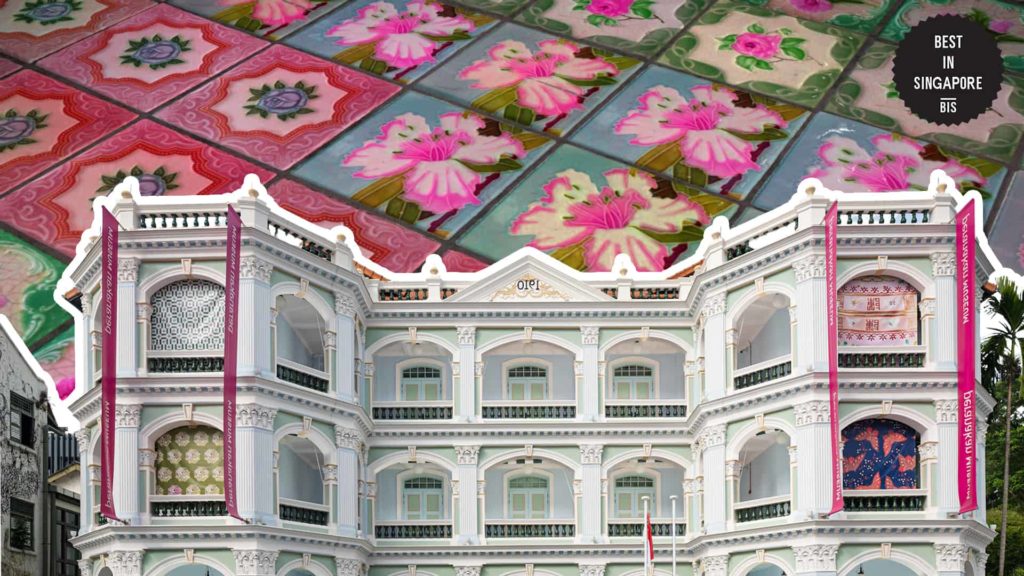
Peranakan tiles are now mass-produced, so more and more people have them in their own homes. But if you want to see authentic Peranakan tiles that have been around for decades, you might want to visit some heritage buildings.
Here are some of the heritage places with Peranakan tiles in Singapore.
Joo Chiat Shophouses
— From: kylieredden
If you’re looking for Peranakan buildings that have been preserved well, Katong-Joo Chiat is where you should go. This neighborhood is also known as the first heritage town in Singapore, so there are many heritage buildings here.
The main highlight is arguably the row of historical shophouses. These shophouses are screaming in pastel colors, effectively drawing the attention of everyone in the vicinity.
If you look closely, you’ll spot Peranakan tiles on the buildings’ facades. The designs mostly feature floral motifs and geometrical shapes.
Straits Enclave
— From: marieanne.bbrt
Address: 318A Joo Chiat Rd, Singapore 427569
Contact Number: +6597897628
Straits Enclave is an underrated museum that’s dedicated to Peranakan culture. To be more specific, it focuses on the golden era of Peranakan culture, so you can find all sorts of heirlooms and antiques here—some dating as far back as the early 1900s!
Aside from heirlooms and antiques, exploring the museum allows you to spot old Peranakan tiles and furniture. Classic treats are also served here, such as kueh and tea, and you can participate in cultural talks and workshops about Peranakan crafts.
The Intan
Address: 69 Joo Chiat Terrace, Singapore 427231
Operating Hours: Monday to Sunday—7 am to 10 pm
Contact Number: +6564401148
The Intan is another popular Peranakan museum in Katong-Joo Chait. While Straits Enclave highlights the golden era, The Intan is all about the old-world charm of Peranakan culture.
For this reason, you’ll find black-and-white photographs and vintage furniture. There are also colorful Peranakan tiles on display, so keep an eye out for them.
You might be interested in going on a tour around the museum because you’ll be accompanied by the owner himself. You’ll also be able to enjoy Peranakan snacks and tea.
Katong Antique House
— From: stb_sg
Address: 208 E Coast Rd, Singapore 428907
Contact Number: +6563458544
Katong Antique House isn’t so much a museum as it is an old Peranakan house that’s been preserved. This house has been passed down several family generations, and the owners still have everything intact.
Just like the other Peranakan historical sites mentioned, Katong Antique House is filled to the brim with traditional Peranakan jewelry, furniture, and tiles. There are also old-school costumes and photographs here, and you can ask for personal stories.
Where can I buy Peranakan tiles in Singapore?
Peranakan Tiles Gallery
— From: craftyestee
Address: Singapore, Pagoda St, 37号 邮政编码: 059196
Operating Hours: Monday to Sunday—12 to 6 pm
Contact Number: +6566848600
Peranakan Tiles Gallery is the ultimate destination for people who want to shop for Peranakan Tiles. This company uses state-of-the-art Italian technology, so you can expect nothing but the best here.
Additionally, they utilize the handmade screening thrice-fired method, so the final product gives off a metallic and chromatic look. Because of this, your Peranakan tiles are sure to stand out in your house.
Soon Bee Huat
Address: 257 Changi Rd, Singapore 419746
Operating Hours: Monday to Sunday—9 am to 7 pm
Contact Number: +6564401900
Soon Bee Huat has been in the tiles and surface materials supply industry for more than 20 years, making them one of the leading companies for tiles and stone surfaces in Singapore.
Their bestselling products are contemporary European tiles and natural stones, but you can find Asian tile designs like Peranakan tiles here as well. There are also beautiful tiles with mosaic designs.
Currently, Soon Bee Huat has several locations throughout Singapore; the one on Changi Road is the most popular.
Hup Kiong
Address: 48 Defu Lane 7, Singapore 539355
Operating Hours:
- Sunday and Monday—11 am to 5:30 pm
- Tuesday to Friday—9 am to 7:30 pm
- Saturday—9 am to 6 pm
Contact Number: +6563822626
Hup Kiong was once a renovation company in the 1980s, but they changed their focus to the supply of building materials in 1991. Since then, the company has become one of the most popular tile suppliers in Singapore.
Hup Kiong sources their products from other countries in Asia and Europe, such as China, Malaysia, and Italy.
Because of this, you have many options for materials, finish, and even brands, so don’t hesitate to look into as many tiles before making a final choice.
As for the Peranakan tiles offered here, they are colorful and feature geometric designs, but there are monochromatic options if you prefer.
Living with Art Singapore
Address: 315 Outram Rd, #02-05, Singapore 169074
Operating Hours: Monday to Sunday—11 am to 7 pm
Contact Number: +6569176503
Located in Outram Park, Living with Art Singapore is home to a wide selection of art in Singapore. They have everything here—from classic wall prints to home decor stuff; they even have styling services offered here!
There are several Peranakan tiles sold here, and they all feature abstract geometrical designs, though floral motifs still surface in some tiles.
You might find the Peranakan tiles sold here to be expensive, but don’t worry because their quality is great. You can also pay in installments.

